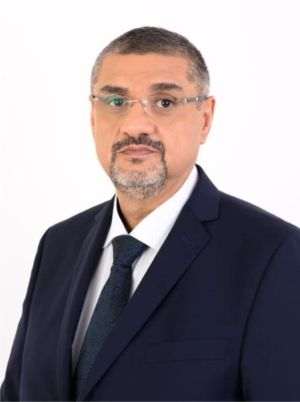Reporter: Dear Mr. Hassiotis, will the banking system be affected by the "bail-in" procedure which is shaping up for 2015?
Anthony C. Hassiotis: I don't think that it is a problem for Romania, and I don't think it will be a problem in general.
There are talks on the subject, because the authorities want to make sure that the citizens will be careful themselves about where they deposit their money. For example, if somebody pays you an interest rate of 20% on deposits, you need to be careful. People should penalize the banks that pay unjustifiably high interest rates.
The Romanian banking system is healthy, it is clearly competitive, but it all depends on the rate of economic activity.
If the GDP growth were 10%, the 40 banks that the Romanian banking system currently has would not be enough, and we would need 100 banks. But when you have a growth rate of 2 - 2.7%, little economic activity and not enough money coming in from other sources than the deposits of the citizens, then maybe 40 banks are too many.
Reporter: What do you think the banking system is doing to regain the trust of the population?
Anthony C. Hassiotis: I don't agree with this statement at all. First of all, if people didn't trust the banking system, they wouldn't have put their money into the banks. But all the money is in the banks.
Reporter: Maybe because they don't have a choice.
Anthony C. Hassiotis: I think that the lack of confidence in the banking system concerns lending.
It is possible that sometimes, the population disagrees with the banks' policies when it comes to lending or loan collection, but that doesn't necessarily mean that there is no confidence in Romanian banks.
Reporter: Last year you said that Romanian banks are fighting over a number of customers that is too small. Will we see mergers and acquisitions in the banking system this year?
Anthony C. Hassiotis: I think that some banks could leave Romania this year. I also think that there are bank owners that want to rationalize their operations in Romania, maybe because their presence isn't developed enough over here, they don't have a high enough profit or perhaps because they have problems over there and they are forced to pour money into those operations. I wouldn't be surprised if these things happened, just like I wouldn't be surprised if it happened in the neighboring countries.
For us, Romania remains a country of major importance, we have a big investment here and our goal is to certainly stay and prosper.
Reporter: How would you assess the activity of Bancpost in 2013?
Anthony C. Hassiotis: In Romania, as well as in the entire region, we are faced with the lack of new customers, but our revenues have been improved by the interest rate cuts, the cost of financing and of course we are trying to find ways of generating commissions. Last year, we conducted some restructuring in Bancpost, and we have paid attention to revenues as well as expenses.
On the expenses side, we did very well last year. One of the positive effects of this crisis is that not just us, but the entire market is reviewing its costs. The moment things improve, this will have a positive impact, because the costs have dropped and they will continue to do so. We have performed some restructuring, but some people have left through natural attrition. However, that does involve costs, because we have employees which we have spent money training.
One of the things that constantly requires a lot of attention from us are provisions, because we are required to set them up, and to make sure that they accurately reflect circumstances. We have set up major provisions and we think that this puts us in a favorable position for moving forward.
Reporter: What can you tell us about the lending activity of Bancpost?
Anthony C. Hassiotis: We are seeing deleveraging at Bancpost, as well as at the level of the banking system. Unfortunately, there isn't enough demand, for corporate loans, nor for mortgage loans, consumer loans, or for small and medium enterprises.
After the second quarter of 2013, the economy froze in Romania, as well as in the region, in spite of what we were hoping and of the fact that the year had begun very well. We don't know what the cause of the stagnation was, because it is hard to assess what is happening in the region.
Still, towards the end of the year, we have noticed a recovery in lending on certain segments - consumer loans, credit cards -, but a segment that we still need to work on is the corporate segment.
Reporter: Did you see customers migrate to other banks due to the situation in Greece?
Anthony C. Hassiotis: Of course not. First of all, the situation in Greece has stopped being a crisis a long time ago. The situation has improved considerably lately, as did that of our parent bank.
It is true that we are seeing a lot of refinancing, clients want to get loans at lower interest rates from other banks. The situation is somewhat understandable, because, since there are no more new customers, everyone is looking to generate new revenues by offering better terms to the already exiting customers.
Reporter: Which sector do you feel would be good for lending in the next two years?
Anthony C. Hassiotis: There are a number of sectors that can be viable, but those that should definitely see lending, are those that have an economic multiplier effect.
We are trying to grant loans for production and exports. When a company exports, it first of all means that it has a competitive product, and exports bring money into the country.
Other viable sectors for lending are agriculture, energy, services and production. Sure, there are always the automakers and their various subcontractors we can lend to, but the areas that I mentioned are the best.
Reporter: What is the current state of deposits in Bancpost?
Anthony C. Hassiotis: Deposits are growing, we have liquidity and I think that this proves that people trust us.
Reporter: Do you pay higher interest rates?
Anthony C. Hassiotis: We don't pay high interest rates, on the contrary, we have cut the interest rates, in line with the rest of the market. We can't pay higher interest rates than other banks, because it wouldn't be normal.
I am now going to say something that may not necessarily be good for banks: constantly keeping all your money in the bank, may not necessarily be the best thing you could do. Eventually, it would be recommended to put that money into investments that produce something.
There are tools you can use in that regard. For example, if you have 100 lei, place 80% lei in the bank, 10% in a hybrid instrument that has a stock market component, and 10% in a company, so that you generate more money and more economic activity.
From that point of view, perhaps now, when people realize that they are no longer getting the interest rates that they were getting before, they will invest their money in that kind of instruments and will generate economic activity.
Reporter: What can you tell us about the merger between Eurobank and NBG?
Anthony C. Hassiotis: This issue is no longer a priority for the Greek banks. Over there, Eurobank is trying to recapitalize itself on its own, by raising capital on its own and the merger is no longer an issue of actuality.
Reporter: Last year there was information that the subsidiaries of Greek banks in Central and Eastern Europe would be sold. How would you comment on that?
Anthony C. Hassiotis: I think that there have been talks with the authorities in Brussels, by which the European officials have suggested that all the Greek banks evaluate their presence in the region and the manner in which they will proceed from now on. But the negotiations are still under way, we still have time until mid-2018 to do something, which means that there is plenty of time to make the correct decisions.
To the extent that we agree anything with the authorities in Brussels, it goes without saying that we will honor our commitments, but on the other hand, because everything is so fluid, making any kind of forecast is very ambitious. Even making a forecast for six months is very ambitious, whereas until 2018 there are four years left and many things can change.
Reporter: What can you tell us about the non-performing loans of Bancpost?
Anthony C. Hassiotis: I think that non-performing loans are a problem everywhere, not just at Bancpost.
NPLs are a burden for every bank and up until now, each bank has struggled with them on their own. Compared to five years ago, we have more experience in handling NPLs, we are striving to deal with them, but I think that the authorities should first of all focus on coming up with and discussing better standardized solutions.
Reporter: How has the activity of Bancpost been affected by the Romanian insolvency procedures?
Anthony C. Hassiotis: Bancpost was negatively affected, just like any other bank. Insolvency is a correct concept, a process that companies normally go through when they have problems, they restructure themselves and come with a proposed plan for the future, which would allow them to continue their operations. Like it happened in the case of Hidroelectrica for example.
But insolvency should not be used abusively or inappropriately, like it has happened in Romania. The main problem is that you can file for insolvency and stay like that ad infinitum - I understand that the new version of the Insolvency Code sets a limit on that -, meanwhile, you take everything that is valuable out of the company, until there is nothing left in it, you hand over the control over it and say: "There, now it's going to file for bankruptcy".
Something like that is obviously not correct. Furthermore, the ease of declaring insolvency is not fair. For example, if there is a company that is worth 100 million Euros, that owes 10,000 Euros, you can immediately begin the procedure requesting the insolvency of the company in question.
Reporter: Where do you see Bancpost two years from now?
Anthony C. Hassiotis: We would obviously like to remain a systemic bank, a bank that is important to the economy. We are proud of our bank, I think that our people did a very good job over time, we want to be here, to contribute to development and to make money.
Reporter: What do you think the banking system should do to convince more people to use its services?
Anthony C. Hassiotis: That is the challenge in Romania. We estimate that out of the total of the population, less than 50% participate and operate through the banking system. That means approximately 10 million citizens. Let's say we have 8 million of those who do not use banking services. Can you imagine what would happen if the number of users increased by just 10% - we would have another 800,000 customers.
That is the problem that we need to focus on: why don't more Romanians use banking services? We need to find the reasons for that and try to do something on that matter.
Reporter: Thank you!
























































